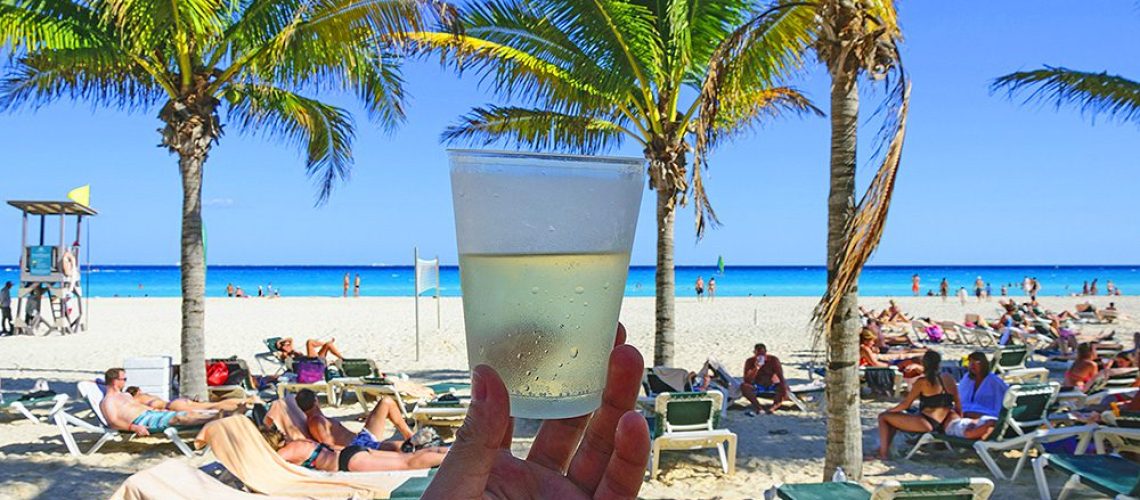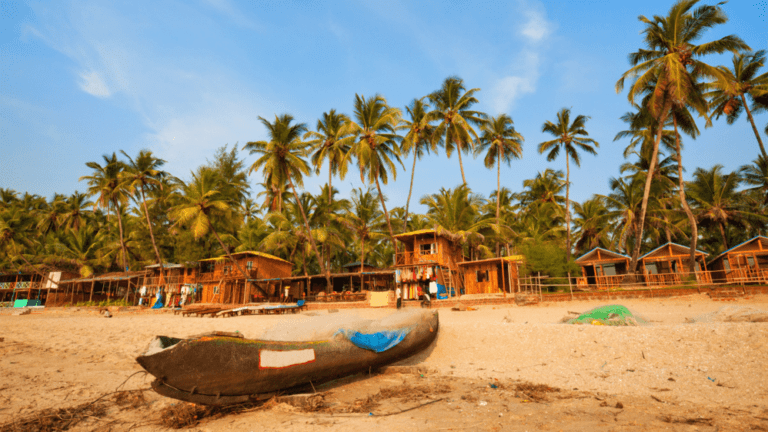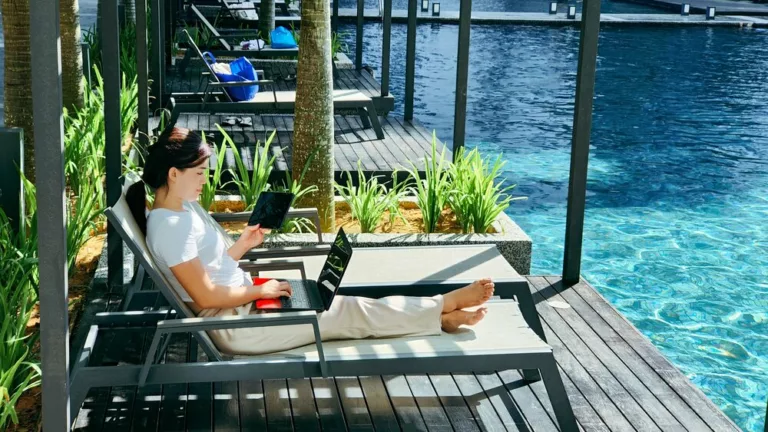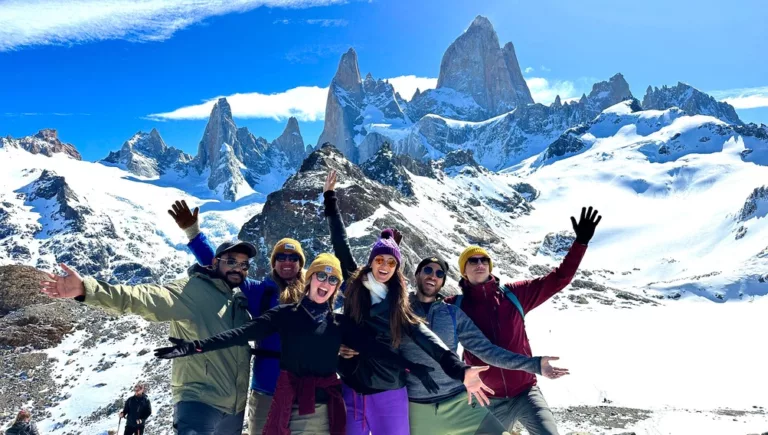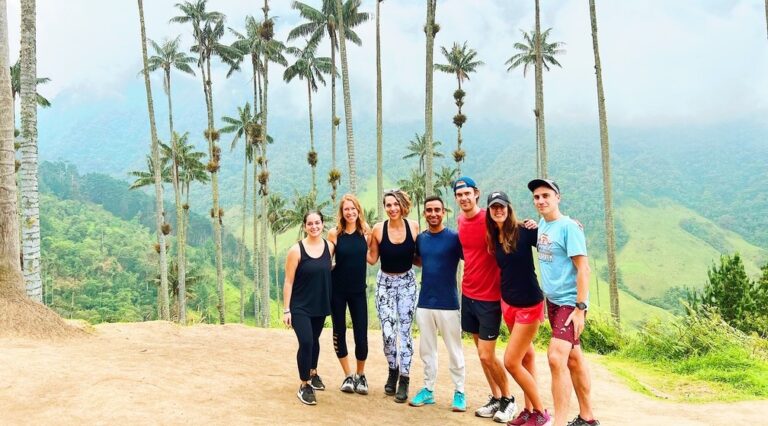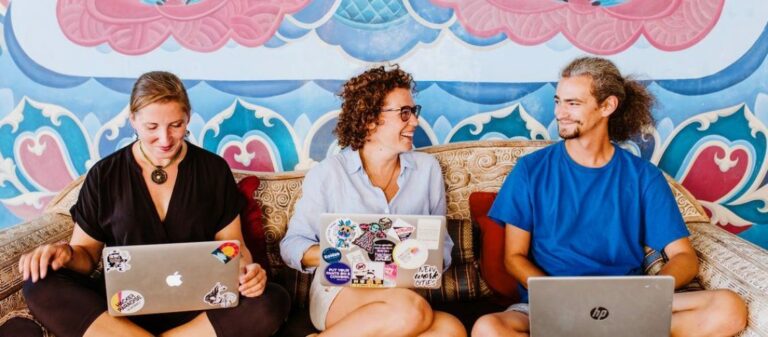Lessons Learned Throwing a Hacker Retreat in Costa Rica
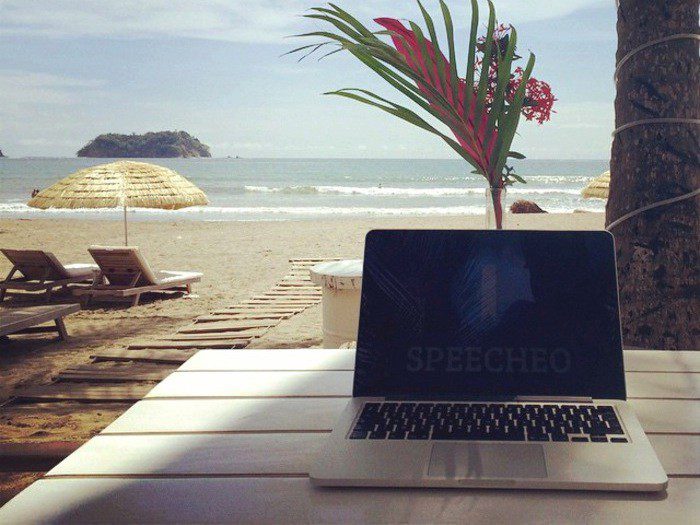
It’s been just over two weeks since Hacker Paradise (our programming retreat in Costa Rica) came to a close.
Participants came from over 10 different countries and had a ton of fun while working on some really cool projects, ranging from a Django-powered site for finding electronic music events in Berlin to a book on how to scale your startup. Even cooler, several people decided to quit their jobs, and several more made the decision to go fully nomadic.
Still, there are a number of areas in which we’d like to improve. Here are some lessons we learned along the way and things we’ll do differently next time:
Setting Expectations
As our host for the retreat, we partnered with a small, boutique hotel set in the jungle of Guanacaste, Costa Rica. Being set in the jungle, the weather was often hot and humid, and there were lots of ants and other little critters crawling around. Some people were unprepared for this, so we want to be more explicit in the future about what to expect to give participants a clearer idea of what it will be like to live abroad in an unfamiliar location.
Benefits and Drawbacks of Isolation
While the jungle offered a serene and remote location, it also meant that we more isolated than people expected – the nearest town was ~20 minutes away, and even that was quite small.
A benefit of this was that the community formed quickly and became quite close. This may have been because the only people you really interacted with on a regular basis were the other participants. People got pretty stir-crazy towards the end, which was helped a bit by branching out and befriending some people who were attending a local language school.
To deal with this for our next retreat, we are looking at locations in major cities and other lively areas, and we will be moving groups to a new country each month to keep things fresh.
The Importance of Good Internet
We knew that having consistently good Internet connection would be important for the retreat, and to prepare, we brought in four separate lines – two cable lines at 3 Mbps and two DSL lines at 6 Mbps. Within the first week, however, it became clear that while the bandwidth might be sufficient, the routing equipment at the hotel could not handle the necessary number of simultaneous connections.
Luckily, a few of our participants had experience in network administration, and we were able to borrow commercial routing equipment that someone had brought down. However, we still had issues with the DSL company and the hotel network infrastructure throughout much of the retreat, so Internet in the rooms continued to be spotty.
Our main takeaway here is that we need to do more to ensure our participants have good and consistent Internet throughout the retreat. Next time, we’re planning to work with local co-working spaces and to buy everyone data SIM cards. We think this will work well, but another option we may try is to bring our own networking equipment and take full ownership over the wireless infrastructure.
Scouting Locations
While you can learn a lot about a hotel from online resources, there’s no real substitute for actually visiting a potential host. In Costa Rica, we had an existing relationship with our partner hotel, so even though we chose them before landing on the ground, we were confident that things would work out well.
However, we’ve heard enough horror stories that we’ll be vetting all potential venues in-person in the future before cutting a deal. In addition to checking out the cleanliness, comfort, and amenities of potential hotels, part of that process will also be to stress-test the wireless networks and to make sure there are interesting activities nearby (restaurants, beaches, nightlife, etc.).
Separation of Work and Living Space
Our workspace for the retreat was also the hotel restaurant. On the one hand, this was convenient – you could order lunch while working and then dive back into your projects after your meal. However, it also blurred the lines between work and play, which may have contributed to feelings of overwork and burnout at times. In the future, we want to make sure we have a clear delineation between work spaces and living / play spaces.
Momentum
People started to lose momentum partway through the retreat. One thing that we think contributed to this is the lack of separation between work and living spaces. It was easy for people to work at night or on weekends, and that may have led to fatigue over time.
Another thing we think contributed to the decline in momentum is that people began taking trips to other parts of Costa Rica and returning mid-week. When people were gone for the whole week, everything went smoothly, and they were able to jump right back into the work environment when they returned. However, when people took trips that returned mid-week, it seemed to mess up the flow for everyone. The people who were gone found it hard to get back into work mid-week, and so often ended up just chilling. This created a weird vibe for the people who had stayed and were working like normal.
In the future, while we’re still going to encourage people to travel and see the countries we’re visiting, we’re going to require them to be there on Monday mornings to start the week off strong.
Structure
Our structure in the beginning consisted solely of daily stand-ups and weekly demos, and most people told us that this was less than they had expected. After people settled in, this seemed to be both a positive and a negative. People enjoyed the freedom to do whatever they wanted and to pursue their own projects and goals. At the same time, some participants felt like they might have been more productive if they’d had more structure and support.
Realizing this, we made a few changes during the retreat – namely, we added a weekly goal-setting breakfast at the beginning of the week and organized more talks and seminars for weekends. We also implemented an “everybody demos” culture that got more people to showcase their work to the group. We’re going to continue to experiment with this in the future to find ways to bring additional accountability to those who want it.
Local Service Providers
We had several issues arise in deals that were made with a local masseuse and a local surf instructor. Shortly after our participants committed to a deal, the locals tried to charge them more money. This could have been due to a miscommunication, but from the circumstances, it seems more likely that they needed money and thought they could get more out of us.
In both cases, the vendors came through a recommendation, but we were not directly involved in the deals made with our participants. In the future, we will be handling local vendor relationships directly and making sure terms are explicitly agreed to before entering any arrangement. This gives us some leverage to protect participants in the event that things go haywire.
Community
One of the most important things we learned this retreat is the importance of community. Even though there were a number of bumps in the road and areas for improvement, the community was so strong and supportive that participants still had an overwhelmingly positive experience. It seems cliché, but more than a couple of people have reached out to us since returning home to tell us that the experience was life-changing.
Final thoughts:
In summary, our main takeaways are these:
- Pick great people.
- Find or set up good Internet.
- Cultivate a strong community.
If you’re thinking about organizing something similar, feel free to reach out to us and we’ll be happy to talk more.
Also, you’re interested in traveling with us, we’ve just opened applications for our spring batch in Southeast Asia.

